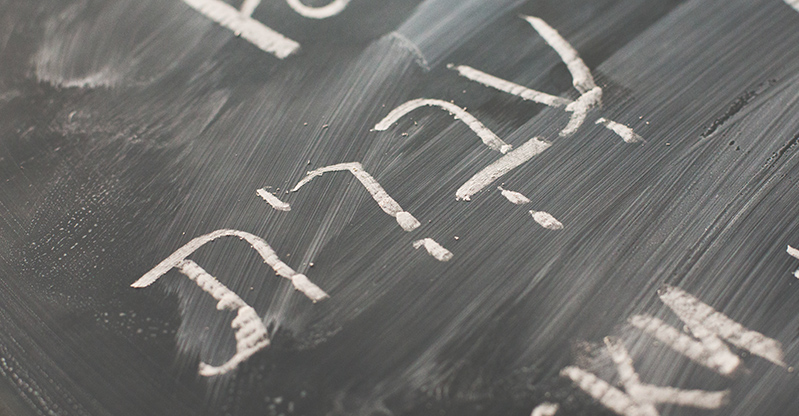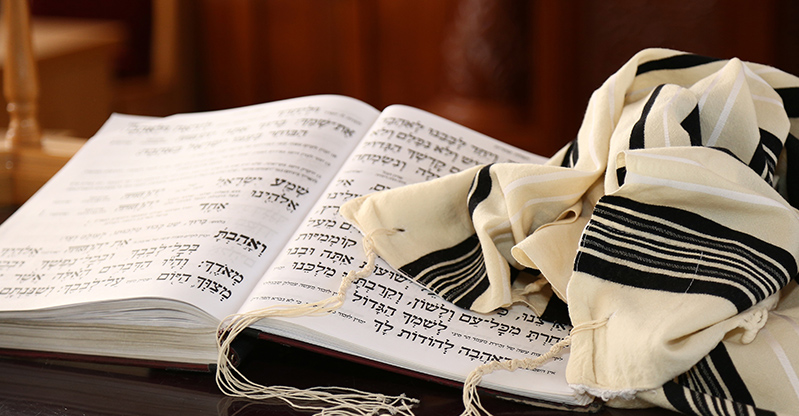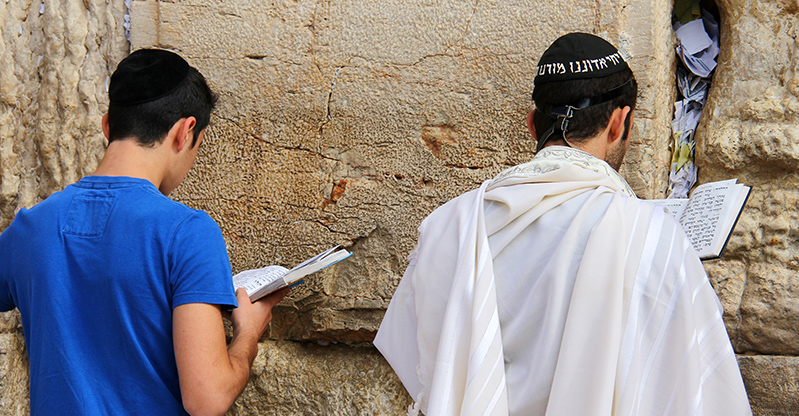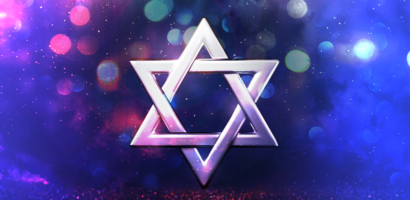Judaism is way more than just a religion. Being Jewish is holding in your hands an ancient story, a responsibility of continuity, and a sense of belonging to a group of people who have led some of the most critical chapters in human history. Being Jewish doesn’t necessarily mean believing in a powerful source from which everything comes; being Jewish means having a national history, common patriarchs, a similar heritage, and a similar vision for the future.
According to Rabbi Marcoff, a Conservative Judaic Rabbi who graduated from the Marshall T. Meyer Rabbinical Seminary, says that any reference to “the Hebrews” was just the biblical way to call the members of the people of Israel. He says that Abraham was the first “Hebrew”.
On the other hand, Rabbi Marcoff refers to “Jew” as those who identify with either Judaism or the people of Israel or those who are indeed Jews according to the Jewish law (Halacha). However, in ancient times, this name was given only to those belonging to the specific tribe of Judah.
When he defines “Israelite”, he says that was the name given to the residents of the Kingdom of Israel thousands of years ago. Finally, when he comes to define “Israeli,” he simply says that this is the demonym of those who live in the State of Israel.
That being said, what do all of these definitions have in common? What can unify time periods that are so contrasting and distinctive? You are totally right! These four definitions have endless things in common. But the Hebrew language is one of the most important ones — and the main subject of the paragraphs to come. Why? Please make yourself comfortable, because we are going to explain it in depth.
Eliezer Ben Yehuda: The father of Modern Hebrew
Eliezer Ben Yehuda was a lexicographer and newspaper editor who specialized in Hebrew. He was the critical element for the modern-day resurrection of the Hebrew language. But Hebrew —or a very close approach to the Hebrew we know today — has been around for millennia, and its importance for the Jewish heritage goes way beyond the spectacular job done by Ben Yehuda.
Many Orthodox Jews of the time disapproved of Ben Yehuda’s attempts to rehabilitate the Hebrew language. They were of the opinion that Hebrew, which they had learned only as a Biblical language, should not be used to discuss non-holy or everyday matters. But many other members of Judaism believe — until today — that even the most mundane aspects of our daily lives can become holy. They saw something extraordinary and joined the revolution in this effort.
Ben-Yehuda also served as the editor of several Hebrew-language publications. Therefore, he knew what he was talking about when working on the resurrection of the Hebrew language.
Although Ben Yehuda’s son helped him create some work that did not exist in ancient Hebrew, his work of giving back life to the invisible red string that unifies all streams of Judaism is simply praiseworthy. Before we continue, we’d like to stand up and give a big applause to Mr. Eliezer Ben Yehuda.
In the paragraphs to come, we will analyze the connection between Hebrew and the Jewish heritage from a variety of different perspectives. We hope the following lines inspire you not only to understand the infinite value of the Hebrew language, but also its connection to the world’s history. From the most important revolutions to your roots and personal history. The link is there… it is only about opening your heart and finding it.
The impact of the Hebrew language on Israeli culture
The restoration of the Hebrew language, which hadn’t been spoken since Biblical times, has also significantly impacted Israel’s current culture. The cornerstone of Israeli cultural life is built on a rich legacy and shared language, a shared religious and historical Jewish tradition, and a deep Jewish heritage.
As also mentioned in the subtext of the book “Startup Nation” by Saul Singer and Dan Senor, Israelis feel unique. There is a feeling of uniqueness in the Israeli society that enables them to have this positive chutzpah, allowing them to reach higher levels of success… to turn any dream into either an applaudable reality or a millionaire exit.
But what makes them feel unique? Finding the right path to flourishing in the desert is an essential factor. But being the only country in the world in which people speak Hebrew also helps. We are not talking about just any language; we are talking about the language spoken in the crib of all modern religions, and why not say it, of the world’s history.
Feeling — somehow — the owners of the language that created everything, according to one view of Creation, everyone believes in is a praiseworthy mindset to the Israeli society. In this way, it becomes clear and established that nothing is impossible and that you can do anything; and is exactly that mindset is being taught to Israelis from their early years, to when they pass through the army, and to their studies in university… all in Hebrew.

Hebrew and divinity: The language presence in holy canonized books and scriptures
The Tanakh is the canon of sources that are considered holy by Judaism. It includes the Torah, the Neviim, and the Ketuvim.
In total, the Tanakh includes 24 books that are organized in the following way:
- In the Torah, we have the books of Bereshit, Shmot, Vayikra, Bamidbar, and Devarim.
- In Nevi’im, we have the books of Ioshua, Shoftim, Shmuel, Melachim, Ishaiahu, Irmiahu, Iehezkel, and Trei Azar.
- In Ketuvim, we have Tehillim, Mishlei, Hob, Shir HaShirim, Ruth, Eiha, Kohelet, Esther, Daniel, Ezrah-Nehemiah, and Diverei Halamim.
It is essential to mention that all of these books were written in Hebrew and are still read till today, in the same Hebrew language, with commentaries from our sages. Added in, you guessed it, Hebrew!
Remember when we mentioned those who opposed Ben Yehuda from resurrecting the Hebrew language? Well, their main fear was that the holiness of studying these canonized books in Hebrew was going to be less meaningful because everyone speaks Hebrew in the streets. That never happened, and these holy scripts are still significant and directly connected to divinity for all the people who believe in it.

The importance of Hebrew in prayer
Prayer strengthens the bond between God and human beings. Jews, like other religious people, pray in a variety of ways. The most crucial aspect of prayer is that it should be focused entirely on God, with nothing else being in your thoughts.
According to Jewish law, all individual prayers — and practically all collective prayers — should be said in whatever language the person praying understands.
Another critical text source for Judaism is the Talmud, which specifies which prayers must be spoken in Hebrew and which can be said in any language.
Now… why do most Jewish people pray in Hebrew? It might be because of their heritage and their ancestral connection to the language.
Most synagogues in Israel and worldwide have decided to do most of the prayers in Hebrew. It might be a possibility to extend an invitation to those who pray to learn this ancient language that connects the world with a long-lasting, but invisible, red string.
In which language do you like to pray? What feels most important to you, understanding everything you’re saying or feeling connected to a language through a story of centuries? Well, let’s be optimistic. Both things could happen if you learn Hebrew, and today, Hebrew is just around the corner!

Jewish mysticism and the usage of Hebrew
According to some perspectives of Jewish tradition, the Hebrew language has a divine origin. In the book of Bereshit, mentioned above, God creates the world (and the Universe) by pronouncing his will, showing that as a consequence, language has the highest creative potential.
This view forms the starting point for most Jewish mystical and magical traditions, from antiquity right up to present times.
When analyzing the origin of the most predominant mystics in Jewish history, we realized that most of them were not born in Israel… or the Kingdom of Israel. Their primary mother tongues were far from being Hebrew.
Shlomo Alkabets (someone we are going to talk about in just a moment) was born in Greece, Chaim Vital was born in Italy, Nahmanides was born in Spain, and so on. Some very relevant people for Jewish mysticism were born in Israel, such as Isaac Luria and Shimon Bar Yohai.
Even though some of them did not learn Hebrew in their early years, their arrival in Israel marked a before and after in their careers and legacy.
Their books, which are nowadays studied by thousands worldwide, are written in Hebrew from scratch, allowing people to comprehend the real meaning of what they wanted to say. Instead of a mediocre translation that loses half its meaning.
The incorporation of Hebrew into their lives created something unique. The poem “Lecha Dodi,” written by Shlomo Alkabetz, is now an inherent part of the Kabbalat Shabat religious service worldwide, in all different realms of the Jewish religion.
What started as a Hebrew poem, written by a mystic immigrant from Greece, became one of the essential parts of Jewish prayer on Friday evening. And all because of Hebrew, poetry, and Jewish mysticism.
Extraordinary books such as “Shaarei Kedusha” (Gates of Holiness), written by Chaim Vital, show a very nice approach to Hebrew that enables readers to understand what he is saying while receiving a compelling knowledge of Jewish mysticism.

Aramaic and Hebrew: The roots of the most used language in the land of milk and honey
The primary distinction between Aramaic and Hebrew is that Aramaic belongs to the Arameans, but Hebrew belongs to the Hebrews (Israelites). Remember when we discussed these terms at the beginning of this article?
Aramaic and Hebrew are closely related Northwest Semitic languages with very similar vocabularies. There are, nevertheless, many grammatical and lexical differences between these two languages.
Aramaic’s origins can be traced back to the Arameans of ancient Syria. Aramaic has a three-thousand-year history and has gone through numerous stages of development. On the other hand, Modern or Neo-Aramaic is a set of related languages which include modern spoken Aramaic varieties that were preserved and evolved within detached populations across the Middle East.
The Jewish language, Hebrew, belongs to the Northern Western group of Semitic languages. Despite being spoken in Israel for generations, by the 3rd century BC, Hebrew had been displaced by the western variety of Aramaic. However, the Hebrew language was still used as a liturgical and literary language.
Ben Yehuda, as previously mentioned, resurrected Hebrew as a spoken, modern language in the 19th and 20th centuries.
The official language of the State of Israel is now Hebrew. Hebrew, being the Bible’s language, still amazes and attracts people worldwide.
Many people assume that the origins of Hebrew are in Aramaic. What do you think? Please share your thoughts with us in the comments below.
Subscribe to our newsletter
Learn Hebrew slang, take a virtual tour across Israel, discover the best local food and so much more
Best-selling books in Hebrew during 2021: Not everything is about religion
But not everything is about religion, the Bible, or Jewish mysticism when it comes to Hebrew. As we indicated above, since Ben Yehuda brought back to life this ancient language, many books and significant publications have conquered the hearts of numerous people worldwide.
Not so long ago, we published a ranking with the top 4 Israeli authors you have to read sometime soon, and today, at this point, we’d like to go over the best-selling books in Israel from last year. This way, you’ll fully comprehend that Hebrew goes beyond religion and divinity and its inherent presence in Jewish heritage.
1. The author Einat Nathan wrote the book “My Everything: The Parent I Want to Be, The Children I Hope to Raise”, in which she shows parents how to teach children to be strong and independent by seeing the world through their children’s eyes.
2. Noa Tishby, an Israeli actress, wrote and published a fantastic book called “Israel: A Simple Guide to the Most Misunderstood Country on Earth”. Tishby shares an insightful chronological timeline of Israel, from Biblical times to our days, along with its pages. A very excellent and exciting book to read!
Are you ready to master the language of our ancestors by reading a book in Hebrew? What are you waiting for?
Hebrew is awaiting. Are you ready to learn it?
It is time to reconnect with your roots. It is time to take care of your heritage and the cultural inheritance you’ll leave behind for the future generations of your family tree. It is time to understand that you are part of an endless chain that needs continuity, legacy, and durability.
A great way to do everything mentioned above is learning Hebrew and making it part of your daily life. In the Hebrew courses offered by the Rosen School of Hebrew, you’ll understand how to master the ancient language Ben Yehuda resurrected. And you will fully comprehend the immense importance of keeping it alive.
If you are looking forward to being part of something bigger than yourself while meeting curious learners from all around the world, these online Hebrew classes might be exactly what you were looking for.
The time is now. You owe it to yourself. You owe it to your history. You owe it to your heritage.













[…] many around the world, Hebrew is a language that signifies their heritage and culture. Specifically, the Jews of the Diaspora in far-flung corners of the Earth. There’s a reason […]